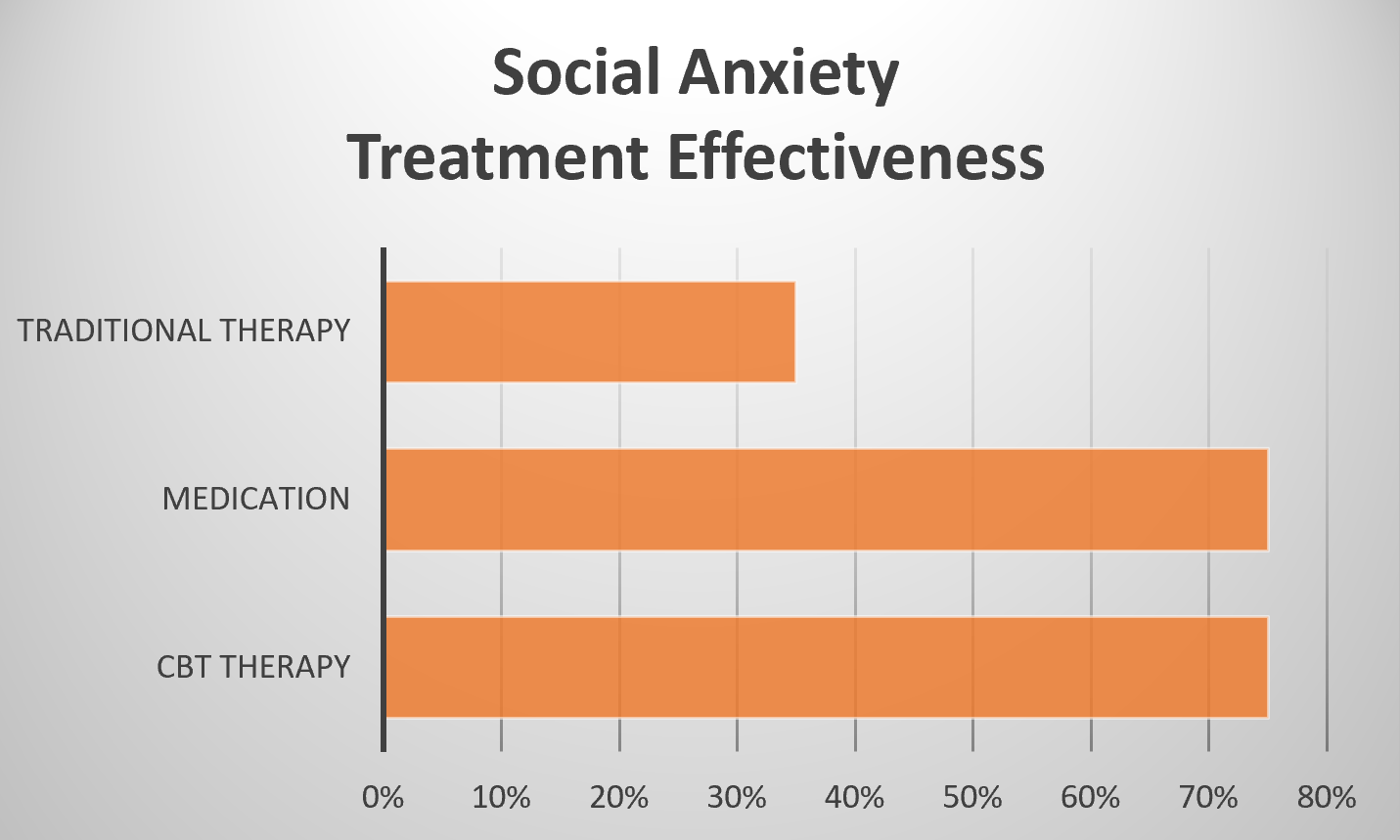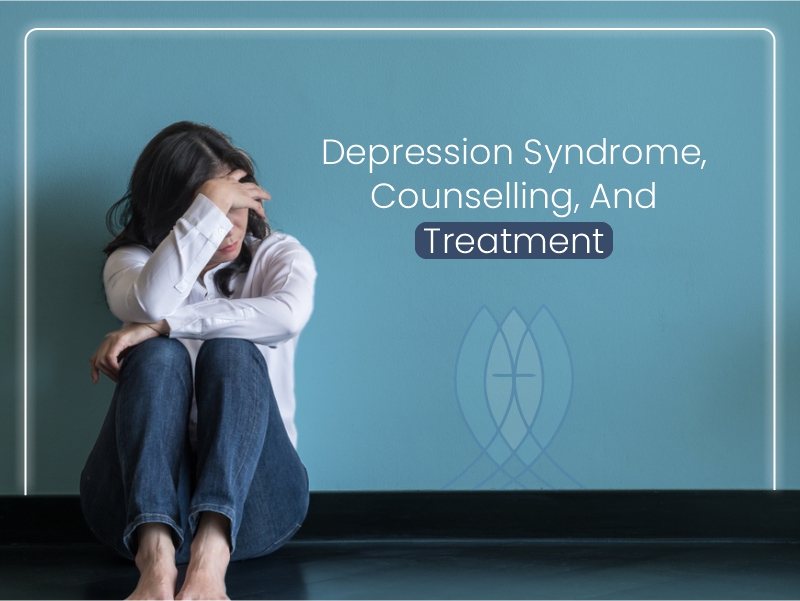Counselling for anxiety disorder available virtually and in-person near you
Wiki Article
Exploring Different Approaches in Coaching for Anxiousness Condition for Lasting Change
When taking on anxiousness problems, it's important to explore a variety of therapy techniques. Each approach provides one-of-a-kind understandings and devices to help you handle your signs and symptoms successfully. You could discover that combining methods can produce the most effective results. Nonetheless, comprehending the nuances of these approaches is vital to promoting long lasting change. What if the ideal mix could release a new degree of emotional well-being for you?Recognizing Anxiety Problems: A Short Introduction
Stress and anxiety conditions, which affect numerous individuals worldwide, can substantially influence day-to-day live. You could experience frustrating sensations of fear or stress that appear irrepressible. These feelings can result in physical signs like an auto racing heart, sweating, or also lightheadedness. Usual sorts of anxiety conditions include generalised stress and anxiety condition, panic attack, and social anxiety problem. Each has distinct indications, however they all share a propensity to interrupt your routine and relationships.Understanding the origin of your stress and anxiety is important. It might stem from genetics, brain chemistry, or life experiences. Identifying your triggers can aid you handle your reactions much better. It is necessary to bear in mind that you're not the only one in this battle. Many individuals face comparable obstacles, and looking for help is a solid action towards sensation better. By discovering stress and anxiety disorders, you're currently on the path to understanding and managing your problem better.Cognitive-Behavioral Treatment: Challenging Adverse Thought Patterns

Identifying Negative Thought Triggers
When you encounter moments of distress, recognizing the certain triggers behind your negative ideas can be essential in taking care of stress and anxiety. Beginning by paying attention to circumstances that prompt sensations of fear or fear. Is it a crowded area, a future deadline, or a conversation with certain individuals? Write down these instances in a journal. This will certainly aid you recognize patterns in your reasoning. Likewise, notification physical sensations that accompany your adverse thoughts, like a racing heart or rigidity in your chest. By identifying these triggers, you get understanding right into what's sustaining your anxiety. Understanding these links is the very first step in testing those thoughts and inevitably regaining control over your emotional actions.
Changing Ideas With Positives
Testing adverse idea patterns is a crucial action in transforming your mindset and reducing anxiety. You might often discover on your own caught in cycles of self-doubt or disastrous thinking. As opposed to allowing these ideas determine your feelings, practice changing them with sensible options or favorable affirmations. For instance, when you believe, "I can not handle this," change it to, "I can manage obstacles one step at a time (Counseling services for anxiety)." This basic adjustment can greatly influence your emotional state. Consistently identifying and responding to these unfavorable thoughts aids produce a much healthier interior dialogue. Remember, it takes some time and initiative, yet continually exercising this method can bring about enduring modification, empowering you to face stress and anxiety with restored confidence and strength
Building Coping Approaches Together
Replacing adverse thoughts is just the beginning of managing stress and anxiety successfully. To develop long lasting change, you require to construct coping strategies that encourage you. Cognitive-Behavioral Therapy (CBT) helps you identify and test those purposeless idea patterns. Together, you and your therapist can explore exactly how these thoughts effect your sensations and behaviors.Start by establishing sensible strategies, like journaling or mindfulness workouts, that allow you to face stress and anxiety head-on. When you encounter your fears progressively, you'll discover to react in a different way.
Mindfulness and Acceptance-Based Approaches: Growing Present-Moment Recognition
As you navigate the complexities of anxiety, integrating mindfulness and acceptance-based approaches can considerably boost your capability to grow present-moment recognition. By concentrating on the below and now, you'll find that you can observe your ideas and sensations without judgment. This method helps you recognize your stress and anxiety without really feeling overwhelmed by it.Engaging in mindfulness exercises, such as deep breathing, body scans, or guided meditations, allows you to ground on your own in your current experience. Acceptance-based techniques motivate you to embrace your emotions instead of fight versus them. When you approve your sensations, they lose their power over you.Incorporating these practices into your daily routine can transform how you respond to anxiety. You'll develop resilience and discover to browse stressful scenarios with greater simplicity. Inevitably, growing present-moment recognition lays the foundation for enduring modification, encouraging you to lead a more meeting life.Exposure Therapy: Facing Fears Progressively
Exposure treatment helps you face your concerns in a gradual means, making it much less overwhelming. You'll discover techniques to encounter anxiety-provoking circumstances action by action, while additionally constructing coping techniques to handle your responses. This method equips you to take control and reduce anxiety gradually.Progressive Exposure Strategies
When encountering anxiety, slowly challenging your anxieties can be an effective method to reclaim control. This technique, called gradual exposure, includes slowly exposing yourself to the circumstances or objects that activate your anxiety. Begin with much less intimidating scenarios and slowly function your way as much as even more tough ones. If you're worried of read more public speaking, you may start by talking in front of a mirror, then proceed to sharing thoughts with a pal, and at some point address a tiny team. Each action assists desensitize you to the worry, building your self-confidence in time. Remember, it's vital to rate yourself and commemorate tiny victories as you relocate through this procedure, reinforcing your capacity to handle stress and anxiety effectively.Building Coping Methods
Building reliable coping techniques is necessary for handling anxiety, especially as you confront your concerns slowly. One powerful technique is exposure therapy, where you begin by encountering your worries in a controlled fashion. Start with less frightening scenarios and slowly function your method as much as more challenging situations. This progressive exposure assists desensitize you to anxiousness activates, making them less overwhelming.Incorporate leisure techniques, such as deep breathing or mindfulness, to soothe your mind throughout direct exposure. Track your progress, commemorating small success in the process to increase your self-confidence. Keep in mind, it's alright to take your time; the objective isn't perfection however consistent improvement. By building these techniques, you'll encourage on your own to navigate anxiety and accept life more completely.Psychodynamic Treatment: Discovering Root Reasons of Anxiety
Psychodynamic therapy explores the subconscious mind, disclosing the origin of your anxiousness - Counseling services for anxiety. By analyzing your thoughts, sensations, and past experiences, this strategy helps you reveal underlying disputes and unsettled concerns that may contribute to your existing stress and anxiety. You'll function with a therapist to examine youth experiences, connections, and emotional patterns that form your reactions today.As you get understanding into these much deeper layers of your psyche, you'll begin to acknowledge how past occasions affect your present actions. This understanding can result in catharsis, enabling you to refine emotions you may have suppressed.Through the therapeutic relationship, you can also identify protection mechanisms that may have created gradually, using a clearer path to change. Ultimately, psychodynamic therapy outfits you with the tools to address your anxiousness at its core, advertising enduring makeover in your emotional wellnessAlternative and integrative Techniques: Combining Techniques for Greater Efficiency
Incorporating different restorative methods can improve your journey toward managing anxiety much more successfully. By combining components from cognitive-behavioral treatment, mindfulness techniques, and holistic methods, you can develop a personalized technique that addresses your unique requirements. As an example, you may use cognitive-behavioral techniques to challenge adverse idea patterns while integrating mindfulness exercises to ground on your own in the present moment.Additionally, checking out all natural methods such as yoga or meditation can promote relaxation and decrease anxiety signs. This blend allows you to establish higher self-awareness and resilience.Experimenting with these varied methods can help you find what reverberates most with you. Keep in mind, it has to do with locating a harmony that functions, instead of staying with a solitary approach. This integrative approach not only provides prompt alleviation but likewise fosters long-term abilities for managing anxiousness, encouraging you to reclaim control over your life.The Duty of Support Equipments: Structure Durability Through Link
While it may seem that taking care of anxiousness is a singular trip, having a solid support group can play a necessary role in your resilience. Surrounding on your own with compassionate good friends, family, or support system produces a secure space where you can honestly share your feelings and experiences. You remind yourself that you're not alone in this struggle.These relationships provide inspiration and can give functional coping techniques that have worked for others when you connect with others. It's likewise a chance to acquire perspective; pals can aid you see scenarios differently, decreasing sensations of isolation.Moreover, emotional support promotes a feeling of belonging, which can greatly minimize anxiety symptoms. By leaning on your support group, you can develop strength and take on difficulties more successfully. Keep in mind, getting to out for assistance is an indication of stamina, and it can make all the difference in your trip towards managing stress and anxiety.Frequently Asked Questions
What Are the Usual Signs And Symptoms of Anxiety Conditions?
You could experience uneasyness, tiredness, trouble concentrating, irritability, muscle stress, and rest disruptions. Physical signs can include quick heartbeat, sweating, and trembling. Recognizing these signs early can help you seek ideal support and therapy.
Just How Long Does Treatment Commonly Last for Stress And Anxiety Problems?
Therapy for anxiety conditions typically lasts anywhere from a few weeks to a number of months. It really depends upon your private demands, progress, and the techniques your specialist uses to aid you handle your stress and anxiety properly.Can Medication Be Used Together With Treatment for Anxiety?
Yes, medication can most definitely be utilized alongside treatment for anxiousness. Incorporating both approaches typically enhances therapy performance, helping you take care of signs and symptoms while discovering underlying issues through therapy. Constantly consult your healthcare provider for tailored recommendations.Are There Self-Help Techniques for Taking Care Of Stress And Anxiety?
Yes, there are numerous self-help methods for taking care of anxiety. You can exercise mindfulness, take part in normal exercise, keep a well balanced diet plan, develop a routine, and utilize deep breathing techniques to help in reducing anxiety signs properly.How Do I Know if I Need Specialist Aid for Anxiousness?
You ought to take into consideration seeking expert aid for anxiety if it interrupts day-to-day live, creates significant distress, or if self-help approaches aren't functioning. Count on your reactions; connecting can lead to much better coping skills and support. Typical kinds of anxiousness conditions consist of generalized anxiety condition, panic problem, and social anxiety condition. When you run into moments of distress, identifying the specific triggers behind your unfavorable thoughts can be important in taking care of anxiousness. Replacing adverse ideas is just the start of taking care of anxiety efficiently. By examining your thoughts, feelings, and past experiences, this method assists you discover underlying problems and unresolved concerns that might add to your existing stress and anxiety. It's likewise a chance to get viewpoint; good friends can assist you see situations differently, minimizing feelings of isolation (Counseling services for anxiety).Moreover, psychological support promotes a sense of belonging, which can greatly reduce stress and anxiety signsReport this wiki page